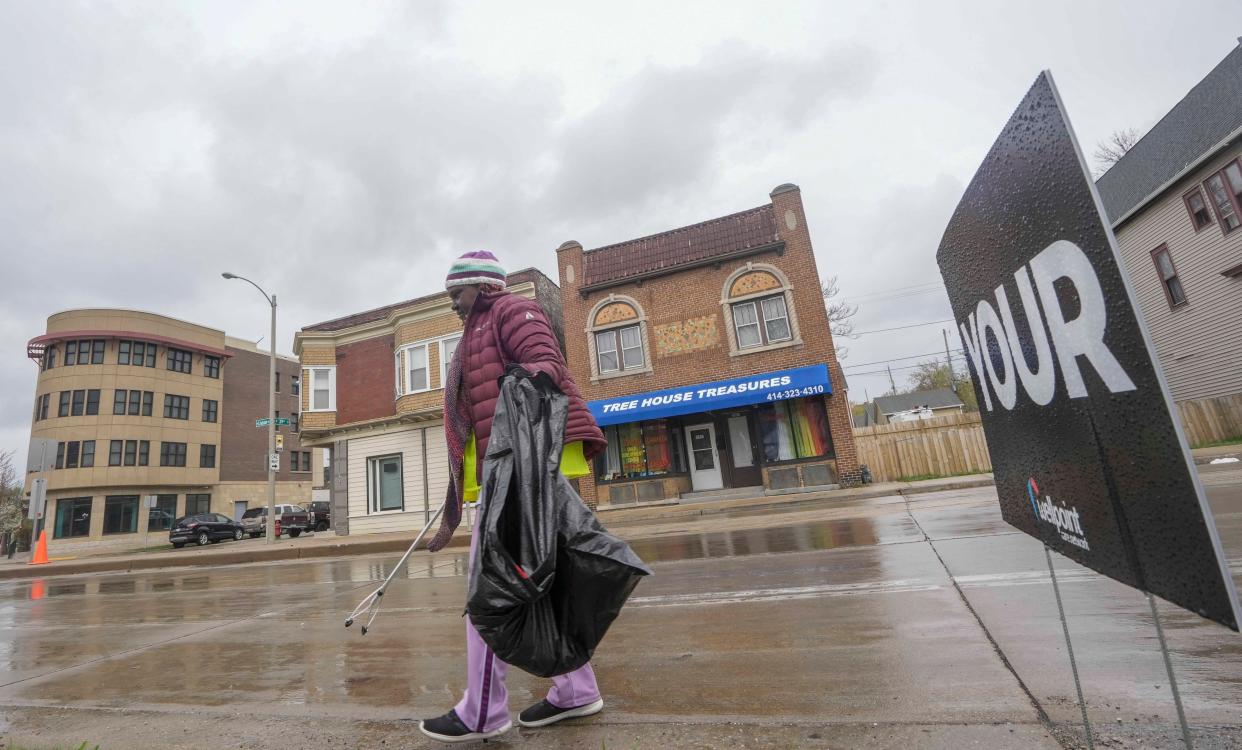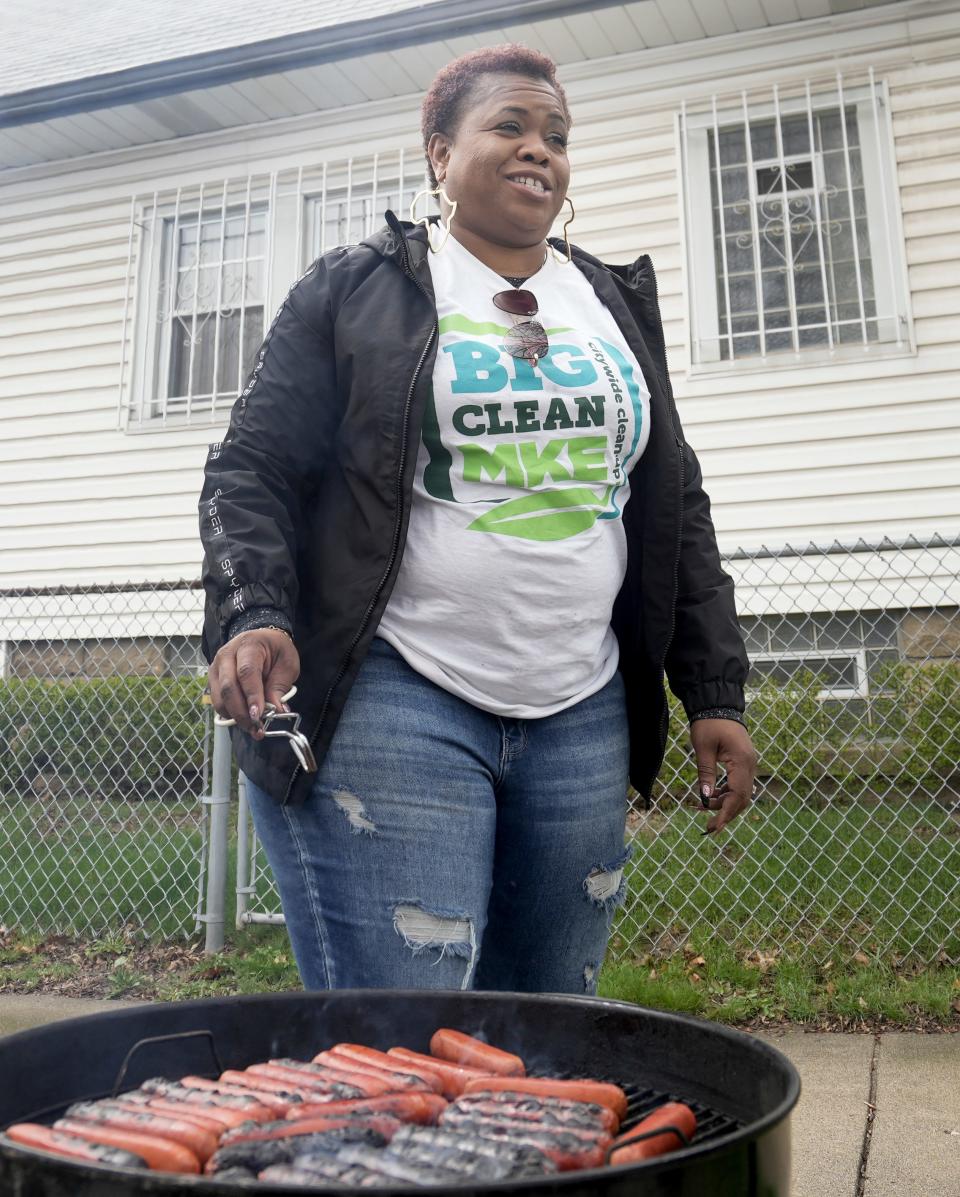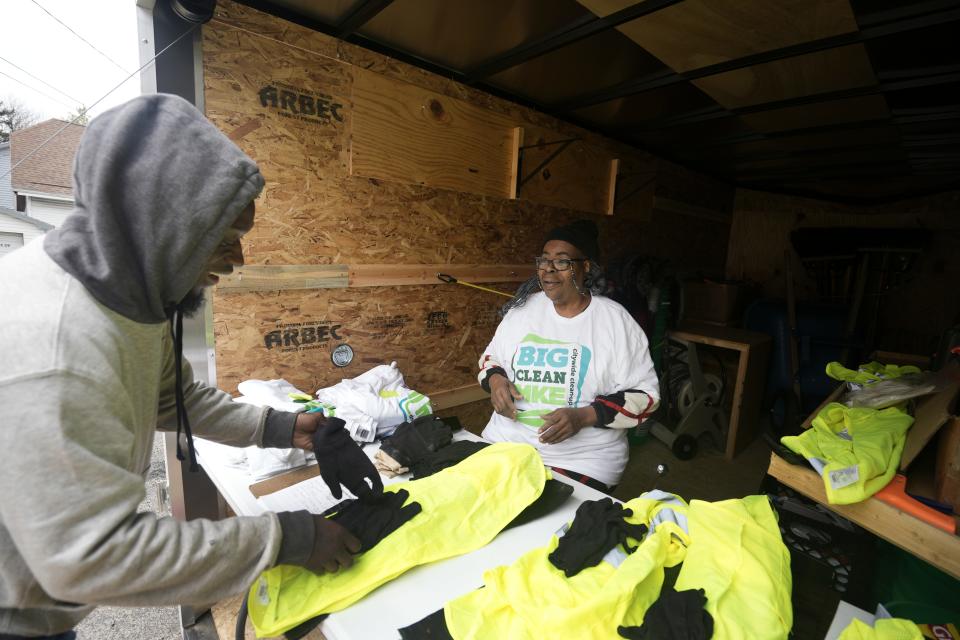Owner-occupied Milwaukee homes are in better shape than those owned by investors or the city, report says

The city needs more financial resources and investors need stronger code enforcement to reduce the number of blighted properties in the central city, according to a new report by the Reclaiming Our Neighborhood Coalition, also known as RON.
The report found that properties owned by the city of Milwaukee or by investors need more exterior repairs than those owned by the people who live in them. And investor-owned properties needing repair are more likely to be tax delinquent than those owned by residents.
The report highlights problems, but the goal isn't simply to point fingers, said Adrian Spencer, the director of neighborhood engagement at United Methodist Children's Services of Wisconsin.
"We’re reaching directly out to the residents, talking to them and making sure they are connected to resources," she said. "At the same time, we’re reaching out to those landlords to apply pressure to get them to do the right thing and make those necessary repairs."
Here's what the report found and what RON says should happen next.
20,000 properties across 15 Milwaukee neighborhoods were surveyed
RON surveyed nearly 20,000 properties, with the help of 83 residents who were trained by the group and paid for their efforts.
Both residential buildings and mixed-use properties — which are both commercial and residential — were surveyed.
The surveyors looked at general exterior signs of decline, such as litter, graffiti and illegal dumping. They also identified whether major repairs were needed to structures such as chimneys, shingles, fascia, gutters, siding, house paint and porches.
Properties in 15 neighborhoods were surveyed: Amani, Avenues West, Burnham Park, Clarke Square, Cold Spring Park, Concordia, Harambee, Layton Park, Lindsay Heights, Martin Drive, Miller Park, Muskego Way, Sherman Park, Silver City and Washington Park.
They used city data of Milwaukee's Master Property Record to determine the ownership and the tax status of the properties.

Nearly $54 million in repairs needed across neighborhoods
Overall, the report stated nearly a quarter of residential and mixed-use properties needed major repairs.
The coalition estimated that making all the repairs would cost roughly $54 million, a gap its members said should be filled with:
More government funds sent to the city for code compliance
More financial support to nonprofits that conduct free and low-cost repairs
More government programs, such as the STRONG Homes Loan Program and the Compliance Loan Program, made available to help low-income and elderly homeowners make repairs.
Owner-occupied homes needed fewer repairs than those owned by out-of-state investors
Spencer said the data disputes many out-of-state investors' claims that they are improving neighborhoods by purchasing and renting distressed homes.
In most neighborhoods, the majority of tax-delinquent properties were investor-owned, and the number of investor-owned properties needing repairs was much higher than owner-occupied homes.
Out-of-state investors have been most active in buying real estate in the Sherman Park neighborhood, which had the highest percentage of investor-owned residential and mixed-use properties at 12%, followed by Harambee, Lindsay Heights and Washington Park at 8% and Amani at 7%.
The other neighborhoods had 5% or less of its properties out-of-state investor-owned — with just 1% of properties in Burnham Park, Layton Park and Silver City.
City-owned properties were most likely to need multiple major repairs
Properties owned by the city are the most likely to need multiple major repairs, followed by investors and then owner-occupiers.
The fact so many city-owned properties are in bad condition does not surprise RON Coalition member Darryl Johnson, the executive director of the Riverworks Development Corporation.
"The city of Milwaukee (has) limited resources," he said. "They take on the worst properties people walk away from, (especially) if someone walked away from the property three years ago."
Nearly 1 in 5 properties in Amani and Washington Park neighborhoods are vacant
Four of the 15 neighborhoods surveyed are home to a significant portion of vacant lots or locations where homes once stood but were demolished. Nearly one in five properties in Amani and Washington Park, and one in seven in Harambee and Lindsay Heights, are vacant lots.
RELATED: In Milwaukee, thousands of vacant homes and lots threaten neighborhood safety and property values
By comparison, less than 5% of properties in the other surveyed neighborhoods were vacant lots, with less than 1% of the neighborhoods of Burnham Park, Layton Park and Silver City featuring vacant lots.
Spencer said the number of vacant buildings is a safety issue, citing fires, squatting and sexual assaults that have occurred when buildings sit empty for months or even years.
Stronger code enforcement, more robust homebuyer programs suggested
The coalition has said it plans to use the data to identify areas of most need, as it has done in the past. For example, Jermaine Alexander, Sherman Park Community Association member and home repair manager, said the surveys eventually led to the creation of the Compliance Loan Program. That program offers homeowners no-interest deferred loans to address code violations; the loans are only required to be paid back when a property is sold.
"Homeowners were receiving reinspection fees, which go onto property taxes," he said. "We didn’t want to have those homeowners in the court systems; they got mixed up with the bad landlords. With that program, we sent those residents to home purchase counselors. They pulled a credit report and did an extensive look into their situation (and) found out they needed more time and funding."
Spencer, Johnson, Alexander and other members of the RON steering committee say policy changes that will get homes into the hands of new homeowners faster is the best way to prevent deteriorating city-owned homes from hurting neighborhoods.
Better code enforcement, they said, is another tool that will force investors, some of whom live out-of-state, to do a better job of keeping their properties in good condition. The city's code enforcement department has faced funding and staffing challenges in the past, with safety and pay restricting its effectiveness.
The coalition, which works with groups such as the Community Development Alliance, hopes these recommendations will help inform local policymakers and philanthropists around homeownership needs.

Coalition's mission is to help Milwaukee homeowners
RON is a collection of roughly 40 nonprofit, philanthropic and government organizations focused on helping low- and moderate-income homeowners maintain their homes, encouraging code compliance among absentee landlords, addressing vacant and nuisance properties and collecting data for advocacy work. The coalition includes Sixteenth Street Community Center, Housing Resources Inc., the Redress Movement and the Community Development Alliance.
RON was created in 2013 from settlement funds following the Metropolitan Milwaukee Fair Housing Council's successful lawsuit against financial institutions for their role in redlining Milwaukee.
Two years ago, the coalition received funding from Rocket Community Fund to expand to additional neighborhoods. The report was put together by the Data You Can Use company.
RON said its priorities for the next years include raising money, improving how the coalition's impact is tracked, expanding coverage into other neighborhoods and hiring a full-time staffer to help coordinate resources.
To reach out to RON, you can call Dawn Hutchison-Weiss, the coalition's steering committee consultant, at 608-215-3262.

Need more help with housing questions? The Milwaukee Resource Guide is here to help. Have something you want answered? Submit a question.
Talis Shelbourne is an investigative solutions reporter covering the issues of affordable housing and lead poisoning. Have a tip? You can reach Talis at (414) 403-6651 or tshelbourn@jrn.com. Follow her on Twitter at @talisseer and message her on Facebook at @talisseer.
This article originally appeared on Milwaukee Journal Sentinel: Most Milwaukee properties needing repair are owned by landlords

